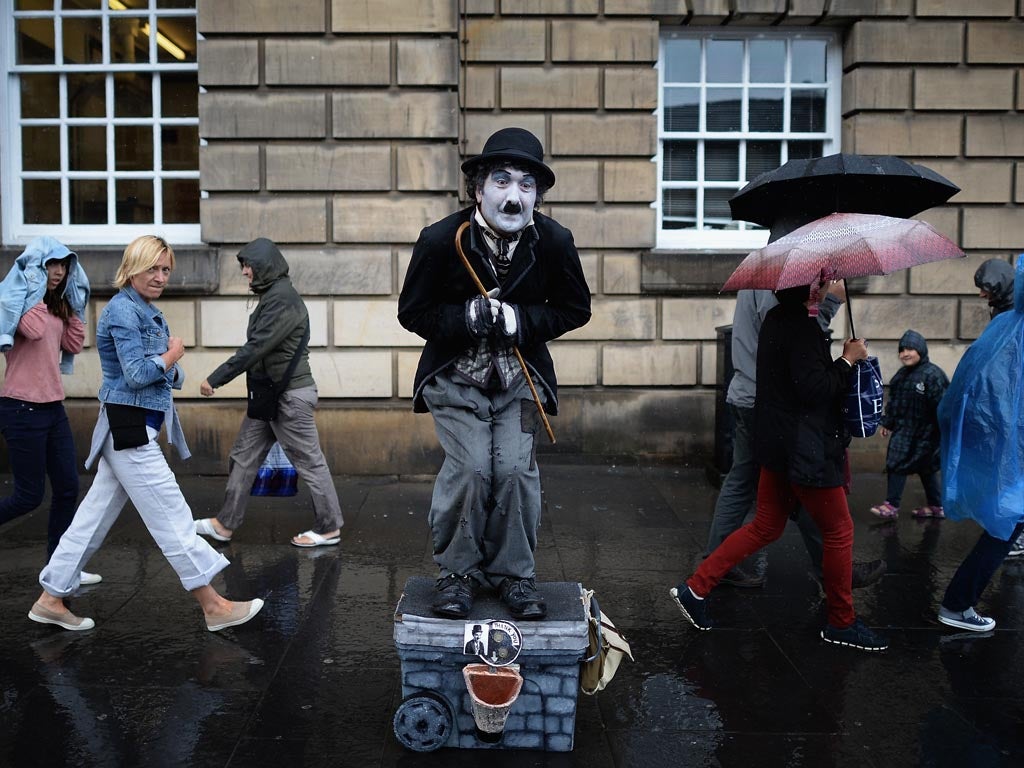Could austerity really be good for the arts? Of course
Unpalatable though it may seem to some, art often flourishes in adversity

Your support helps us to tell the story
From reproductive rights to climate change to Big Tech, The Independent is on the ground when the story is developing. Whether it's investigating the financials of Elon Musk's pro-Trump PAC or producing our latest documentary, 'The A Word', which shines a light on the American women fighting for reproductive rights, we know how important it is to parse out the facts from the messaging.
At such a critical moment in US history, we need reporters on the ground. Your donation allows us to keep sending journalists to speak to both sides of the story.
The Independent is trusted by Americans across the entire political spectrum. And unlike many other quality news outlets, we choose not to lock Americans out of our reporting and analysis with paywalls. We believe quality journalism should be available to everyone, paid for by those who can afford it.
Your support makes all the difference.Mark Ravenhill’s comments at the Edinburgh Festival about the current state of arts funding have caused consternation among media pundits and the liberal arts supporters. His claim that funding cuts “might be good for the arts” is unlikely to endear him to his fellow artists whether they are allied or not with publicly-funded institutions.
Even if Ravenhill’s words have been taken out of context in order to provoke outrage they resuscitate a debate that has long lain dormant. Do artists need to be hungry to make good art?
It is a simple question with a very complicated answer. Government arts funding is, as Ravenhill points out, a relatively recent concept. Prior to the mid-20th century, private patronage was the more traditional conduit for artists to keep the wolves from their hovel doors. Today, in an age when some artists make more money than God or George Soros while others dine on fish paste pasta, the question is moot.
I asked Ken Russell once which was the hardest film he ever had to make he said without hesitation: Altered States. When I asked why, he replied: “Because I had too much money. I stopped thinking.”
Art is not a career choice in the same way as banking or plumbing. It is a vocation. Becoming an artist is a bit like entering the priesthood. It entails sacrifice for a calling that is irresistible. The true artist does not embark on his/her path with the prime motive of making money, or even making a living. Their prime motive is to make art. If, in the process of producing work, they become wealthy it is by default rather than by design. Francis Bacon, Damien Hirst, JK Rowling and Julian Schnabel have all made fortunes through their artistic endeavours in their own lifetimes. Contrary to the philosophy of the current Culture Secretary, Maria Miller, this is not a direct indication of their artistic calibre so much as an example of the caprices of fashion and the market. And it is the market that has infected creative culture like a plague. Every so often the arts need recalibrating to winnow out the good from the bad, the vital from the indifferent, the life-altering from the merely decorative.
Ravenhill also made a further point that demands a wider debate. By condemning the New Labour years of “safe and well-behaved” arts he is surreptitiously asking the question: what is art for? Art has many purposes: to celebrate the human and/or the divine, to interrogate the status quo, to unsettle and enlighten, to encourage entropy, to provoke and prod us out of complacency, apathy and stasis. This requires an alchemical combination of anarchy and self-discipline plus that mysterious fuel that drives the engine of creativity. Unpalatable as it may be to some, art often flourishes in adversity; it is an act of defiance, an orgasmic wail of ecstasy and, sometimes, agony. To be properly effective, it should be a struggle. The comfortable artist is no artist at all.
Neil Norman is a critic and arts journalist, currently writing a play set in the world of newspapers
Join our commenting forum
Join thought-provoking conversations, follow other Independent readers and see their replies
Comments